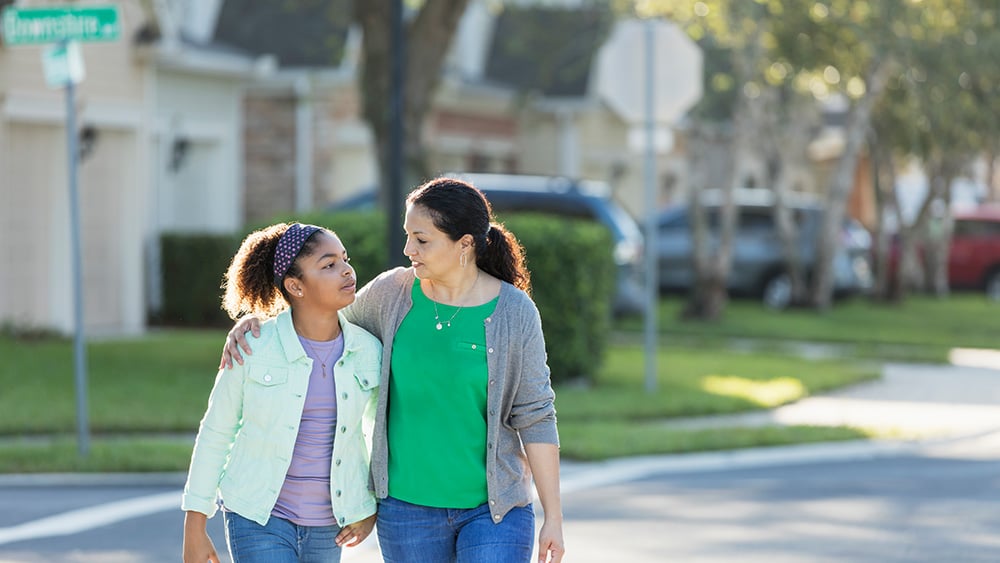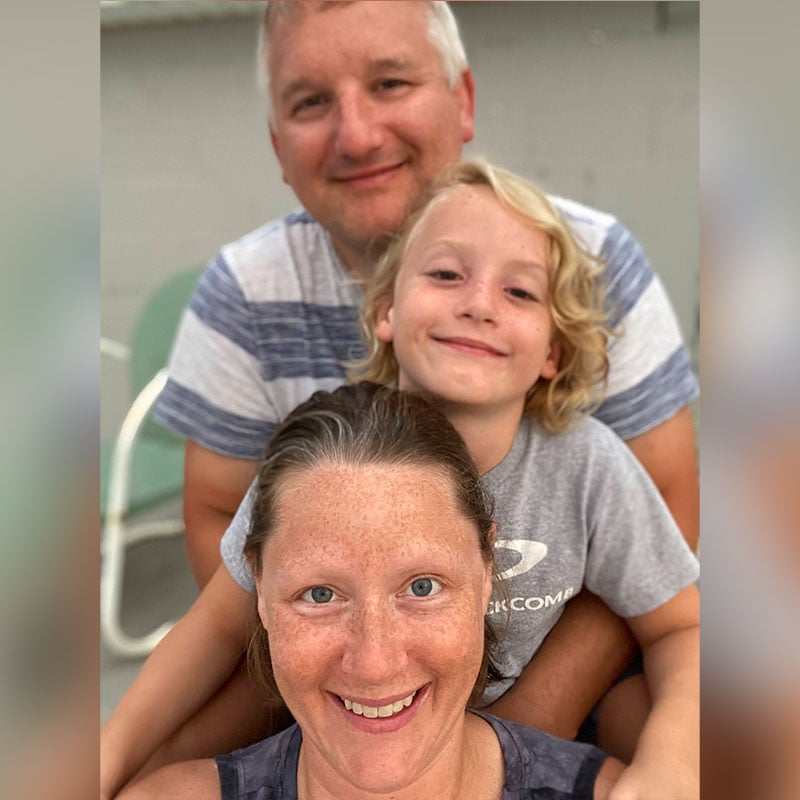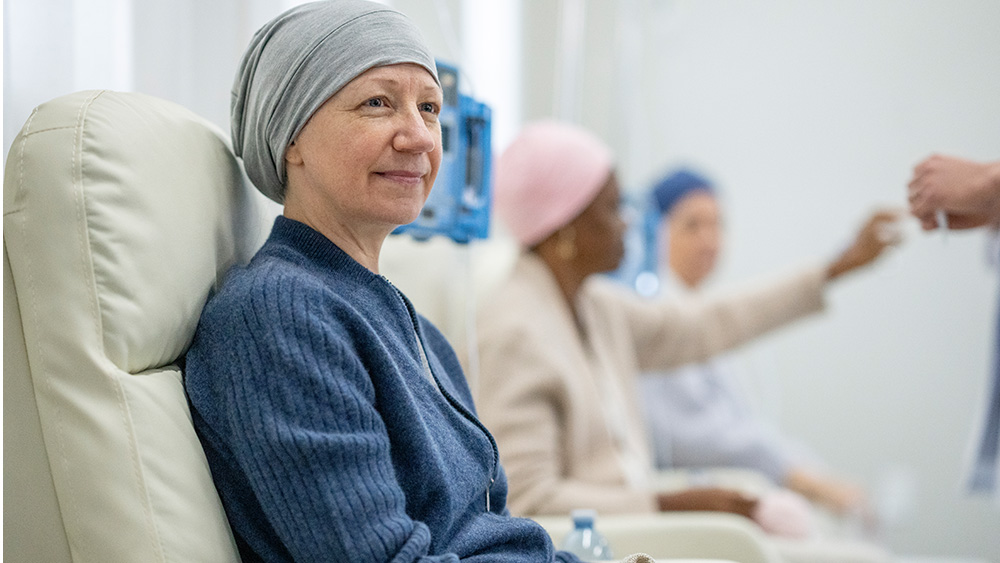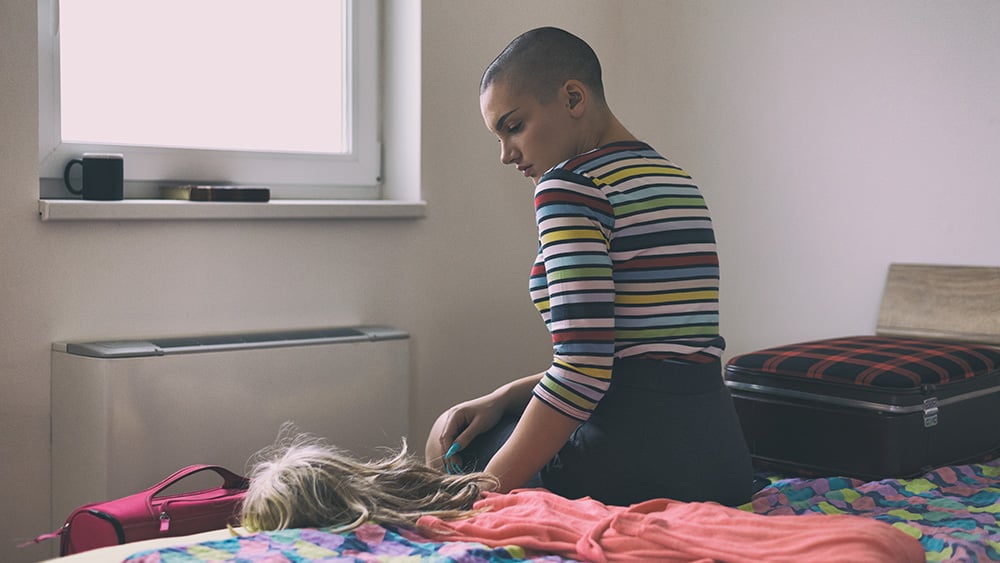Key Takeaways
- There is no “right” way to tell family and close friends about a cancer diagnosis. You get to decide who to tell and how much to share.
- If you need to tell children about your diagnosis, use words they can understand and ask your provider about books or websites that offer suggestions.
- For patients whose family dynamics may be a challenge, our collaborative care team is available to help facilitate conversations about diagnosis and care.
When it comes to a cancer diagnosis, you need expert care. You want hope for a healthy future. The Lipson Cancer Institute gives you both. Let us help you find relief from fatigue during your treatment – and see how else we can help.
When someone is diagnosed with cancer, the news can lead to many emotions. The same can be said of the news when that person tells their family and friends about the diagnosis.
Abby Squicciarini, LMSW, is a social work supervisor for Lipson Cancer Institute and meets with patients at all stages of their cancer journey. She explains how patients handle the conversations differently, how patients can prepare themselves and others for varying reactions, and common questions she is asked.
How to tell someone about a cancer diagnosis
From diagnosis to treatment and beyond, each person who goes through cancer handles their journey differently.
When telling others about a cancer diagnosis, some people only want to share with a select few. Others may tell a wider group of people. Some may want a provider to tell their friends and family. The decision about how many people you tell and how much information you want to share about the diagnosis, treatment, and survivorship should always be in the hands of the patient.
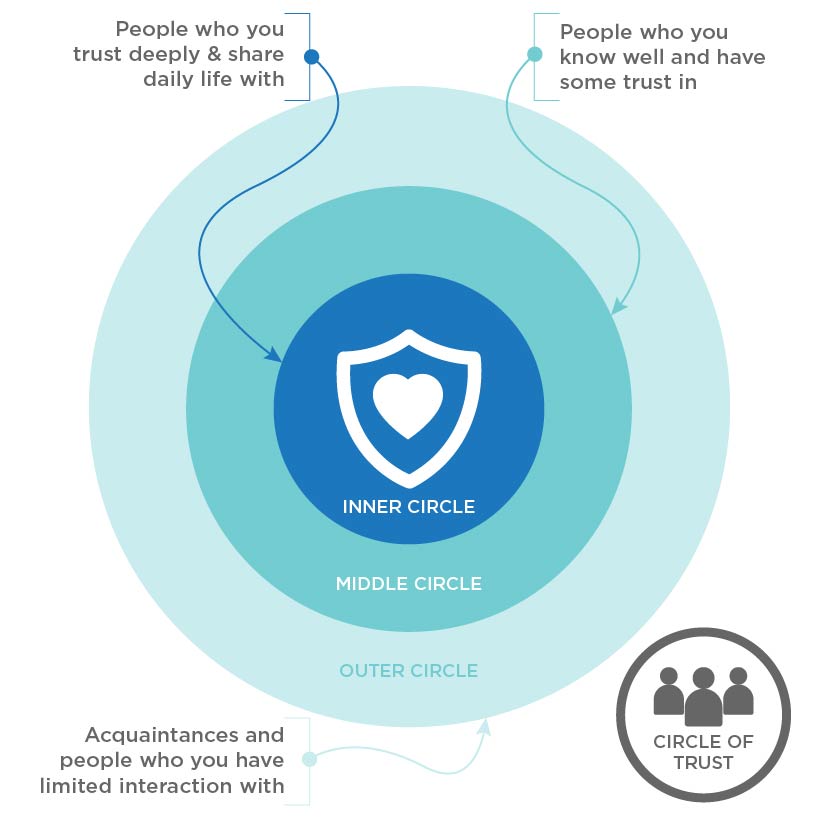
“It comes down to what is important to the patient and what they feel comfortable sharing,” Squicciarini said. “We empower the patient and highlight the importance of having a support team – not just through medical professionals, but also with their social supports and their loved ones.”
When it comes to telling children about a cancer diagnosis, patients are encouraged to use age-appropriate words and concepts that they will be able to understand. There are several community organizations with activities and books that help to inform those conversations. School teachers, administrators, guidance counselors, and school social workers should be made aware so they can step in if any need may arise.
“At the end of the day, this should be all about what the patient needs in that moment,” Squicciarini said.
Setting boundaries with cancer conversations
Once you make the decision about who you are going to tell and how much information you want to share, having the conversation with those people is the next step.
Squicciarini reminds patients that it is not their responsibility to control how another person reacts to the information they are sharing. It is important to set boundaries beforehand to empower the patient and remind them that it’s ok not to share information they are not comfortable sharing.
When you make your decision about what to say and what not to say with others, it is okay to tell family members and friends that you are not sharing certain parts of your medical care right now.
If a close friend or family member is struggling with their reaction to another person’s cancer diagnosis, social workers with Lipson Cancer Institute can connect them to support groups in the community.
Social workers also offer family meetings involving the patient, their family, and the cancer care team, so if the patient doesn’t feel like they can have the conversation on their own, their cancer care team can step alongside the patient to discuss what is going on.
“We’re not just here for our patients, we’re here for their loved ones too,” Squicciarini said.
Offering care for your body and mind
Providers with Lipson Cancer Institute use a patient-centered approach to care, meaning that patients are encouraged to be the ones who drive the conversation. If there are challenging family dynamics that hint at a patient needing more than encouragement and short-term guidance about a single conversation, we offer collaborative care as a connection to talk therapy.
Collaborative care offers support for health challenges with the understanding that cancer and other serious health conditions affect not just your body, but also your mind and emotional well-being. This helps patients develop coping mechanisms and strength-based approaches so they can become comfortable talking to their support people. These therapy sessions are part of their cancer services, and are available in-person, over the phone, or video.
When patients initially talk with a Lipson Cancer Institute social worker about how to tell their family and loved ones about having cancer, Squicciarini said they are sometimes nervous that their loved ones will look at them like a burden or simply look at them differently. Social workers will remind patients that their loved ones are there to support them and encourage open conversations.
“Often, patients need someone to validate that it's okay being nervous and to look for support,” Squicciarini said. “Nobody is prepared to have that conversation. There's no textbook on how to have a conversation like this. So often, we're just having that conversation with the patient and they're looking for a place to start.”

